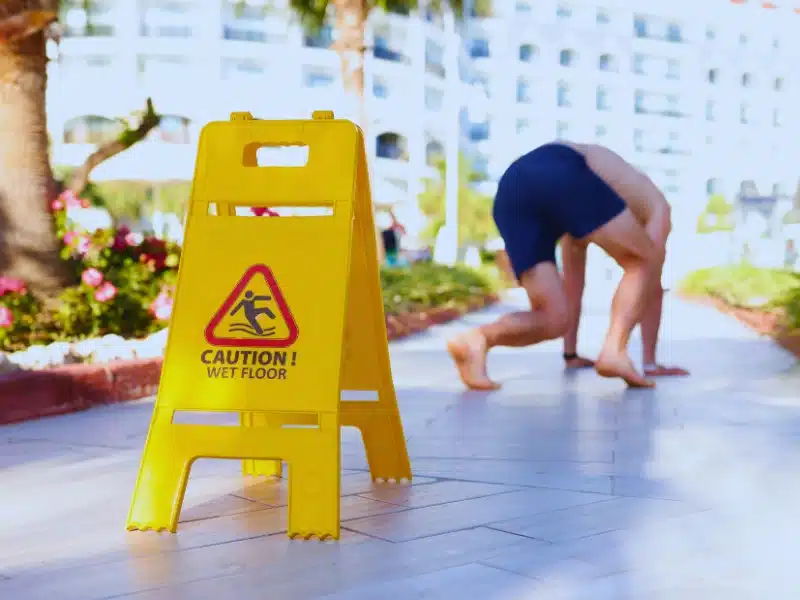You file a personal injury claim in Hawaii by submitting a complaint against the individual or entity that hurt you to a relevant civil court. Your complaint should provide accident details and explain why the defendant is responsible for covering the losses arising from your injuries. You will have to provide the defendant with a copy of the filed complaint and summons. The legal process can be confusing to a tourist injured in the state due to someone else’s negligence. That’s why you should get a personal injury lawyer on board immediately after the accident or incident to help you navigate the legal process.
Table of Contents
Toggle
At Burk Injury Lawyers, we understand how daunting it can be to file a claim in Hawaii as a tourist. That’s why we take that responsibility off your shoulders. Our personal injury lawyers are ready to stand by your side from the initial filing to settlement or resolution in court. Call us today at 702-620-2020 for a free, no-obligation consultation.
Who Can Be Held Liable for Vacation Injuries in Hawaii?
Multiple parties may be liable for vacation injuries in Hawaii. They include:
Resort/Hotel Management
The resort or hotel management is responsible for taking reasonable measures to alleviate safety risks in your hotel or resort. That means you can hold the management liable if you get injured in a resort or hotel because of a hazardous condition it knew or should have known about.
Tour Operator
Hawaii tour operators provide guided tours and recreational water activities to tourists. Unfortunately, the Hawaii Department of Health lists drowning and falls as leading causes of visitor injuries. It’s the operator’s duty to cover all reasonable safety protocols to prevent guest injuries. You can hold a tour operator liable if you were injured due to the operator’s negligence.
Negligent Driver
Many visitors get around Hawaii by rental cars. It’s not uncommon for tourists to get involved in crashes because of another driver’s negligence. The negligent driver will be responsible for covering losses and damages arising from your injuries.
Product Manufacturer
You may sustain injuries during a jet-skiing or snorkeling activity because of a defective gear. The product manufacturer can be held liable if your lawyer determines that a defective part contributed to your injury.
Does Signing a Waiver Take Away Your Right to Compensation?
Most recreation outfitters require participants in fun activities to sign waivers. A waiver or liability exemption form is a legally binding document. By signing it, you relinquish your rights to pursue compensation if you are injured as a tourist. The agreement exempts the operator from liability for your injuries.
A waiver is only enforceable if you suffer an injury due to the inherent risks involved in a recreational activity. It assumes that you fully acknowledged the risks and voluntarily participated in the activity.
You can pursue compensation even if you signed a waiver. The Unfair Contract Terms Act states that event organizers can’t limit their liability if a participant suffers an injury due to their negligence. A waiver can also become invalid because of unclear exclusion clauses or the operator’s failure to disclose inherent risks.
How an Attorney Can Help You File a Personal Injury Claim in Hawaii
A Hawaii personal injury lawyer can help you file a personal injury claim and increase your chances of receiving a fair settlement. The lawyer can help you in the following ways:
Reviewing the Terms of Your Waiver
Your lawyer understands Hawaii’s laws governing release of liability forms. If you signed a waiver, your lawyer will evaluate its details to identify terms or conditions that don’t conform to the law. The lawyer will then initiate a claim or lawsuit if the agreement terms are questionable.
Corresponding with the Insurance Company
Insurance companies often have a team of skilled attorneys and adjusters that focuses on reducing or avoiding liability. You can easily feel helpless when pursuing compensation from these insurance companies. The claims process becomes more difficult when filing a car accident claim because Hawaii is a no-fault state. Additionally, most of these insurers tend to exploit claimants’ limited legal knowledge and trick them into signing settlement forms with unfair compensatory amounts.
However, when a lawyer gets involved, an insurance provider will avoid going beyond the legal limits. Your lawyer will draft the demand letter and send it to the relevant insurer. The lawyer will maintain correspondence with the company. A crucial element an attorney brings is legal authority to negotiate with the insurance provider. Your lawyer knows what to say and do to counter insurers’ exploitative strategies. The lawyer is also not afraid to go to trial to ensure you get your rightful compensation.
Were you injured as a tourist in Hawaii? At Burk Injury Lawyers, our seasoned personal injury lawyers are available to guide you on how to file a claim. Contact us to learn more about the strategies we will employ to secure the highest possible compensation for you. No upfront fees required.
Frequently Asked Questions (FAQs)
Does My Vacation Injury Claim Have to Go to Court?
Most personal injury claims in Hawaii get settled out of court. Settlements are reached through negotiations between the claimant (or the claimant’s lawyer) and the liable party’s insurer. An injury claim only goes to court if the parties involved fail to reach an agreement.
Can I Pursue Compensation for My Vacation Injury if I’m Partly at Fault?
You can still recover damages if you partly contributed to the injury. Hawaii follows the “modified comparative negligence” rule. Under this doctrine, personal injury claimants can claim damages if they contributed less than 50% to the accident. An amount equivalent to your percentage fault will, however, be deducted from your compensation. You cannot seek compensation if you’re 51% at fault.
How Long Do I Have to File a Vacation Injury Claim in Hawaii?
The Hawaii statute of limitations specifies that injured victims have two years from the injury date to file personal injury claims. It’s always advisable to file the claim early to avoid losing your right to compensation because of failing to meet the deadline.




